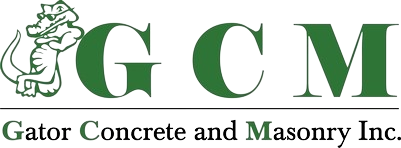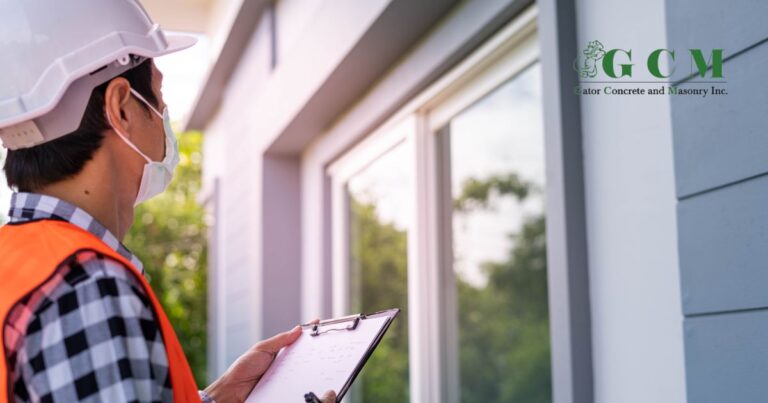No doubt, building your own home is a dream come true for most people. It is one of the most significant purchases that you will ever make, so you must get the best value for your hard-earned investment. As a result, thorough home inspections are necessary to protect this investment and provide a sense of security. Inspections, especially early on in the project, can help you find potential problems and fix them before they can have a significant time or cost impact.
Whether you are building, buying, or maintaining your home, inspections are essential as they provide you with a full report on the state of a property, spot potential problems and risks, and ensure the house is safe, strong, and built to last. Read this article to learn all the essential parts of home inspections, the important things to look for, and a few tips and tricks that you can use to ensure that your home is built and maintained to the highest standards.
What is A House Inspection?
Home inspections are crucial because they give a complete picture of a property’s state, including any potential safety risks, structural problems, and maintenance that needs to be done. It is a project that allows you to objectively examine the foundation, walls, heating and cooling systems, electrical systems, plumbing systems, and other essential parts of the house. If the inspection shows problems, you will need to talk to your custom home builder or another professional like a plumber, electrician, or structural engineer to fix them.
Understanding Why Home Inspections Are Important
A comprehensive home inspection can help buyers make smart choices about their homes. For homeowners, regular inspections make sure that the property is well taken care of, which keeps its worth and makes it last longer. In general, home inspections protect the investment and the safety of the people who live there. They also give people peace of mind and help them avoid costly surprises.
Safety
Inspections help find safety risks, such as weak structures, electricity problems, or toxic materials, and ensure that the home is safe for the people who live there.
Cost Savings
This cannot be stated enough, but finding problems early on can prevent them from getting worse and costing a lot to fix later. You do not want to buy a new home and have it end up with a lot of repairs and rectifications. Many home systems and parts can last longer if they are inspected regularly.
Compliance with Building Codes
It is essential that the building follows all local building codes and rules for both legal and safety reasons.
Do You Still Need to Inspect A Brand-New Home?
The simple answer is yes. Although you are usually not required to get a home inspection, they are there to protect your best interests.
A home inspection is different from a code inspection, which only checks that your building follows the rules set by the building code and does not look at how well your new home is built.
If you do not get a house inspection on a brand-new home, you might make one of the most significant purchases of your life without knowing if there are any problems. A lot of people choose to buy a brand-new home because they think it will have any of the issues that come with older homes. However, even if your house is brand new, it may still have problems or risks that could cost a lot of money to fix.
For instance, issues with the foundation, electrical wiring, or plumbing can be present in a new home. Sometimes, these issues are caused by the house’s newness. This is why it is critical to be able to work with a reliable and trustworthy contractor to ensure your dream of buying a new home does not turn into a nightmare. We all make mistakes from time to time.
When Should You Conduct a Home Inspection?
Getting a newly built home inspected is possible at any time, but there are some critical times when you should do it. Every step is necessary to ensure that your house is built right. Let us look at these vital milestones:
Before Foundation Pouring
If you want to make sure that the roots of your new home are built to last, this is a great time to do it. It is really the only chance you will have to check this. When the foundation make-up is done and the builder is ready to move on to the next step, which is pouring concrete, the pre-pour foundation check is done.
Before You Move In
Now that your home is done, you probably cannot wait to move into your brand-new home! However, now is the time for another home inspection, which is also known as a final walkthrough. During this inspection, the inspector will go with you from room to room to look for any missed items that the builder needs to fix before you move in.
A Year After You Move In
Most of the time, house warranties come with newly built homes. Usually, they are a year from when the property was turned over to you. Any problem after a year is generally considered wear and tear and should be part of the buyer’s maintenance. A month before your warranty ends, it is a good idea to have a professional look it over. You can then make the guarantee to cover any problems that are found.
Advice on How to Do a Complete Home Inspection
A good inspection tells you a lot about the building’s structure, electrical systems, plumbing, roofing, and other things that help you make smart choices and take good care of the property. In this section, we listed a few tips and tricks that you can try to make the most of your inspection.
Get a Professional Home Inspector
It is very important to pick a qualified and expert home inspector. You can look for qualified and certified inspectors by checking out their profiles and portfolios or getting recommendations from people you know. Check out reviews, call the inspector’s contacts, and make sure they have worked on homes like the one you want to buy before.
Going to the Inspection
The inspector will be able to give you a comprehensive report, but going to the inspection gives you a chance to inspect your home, ask questions, learn more about the condition of the house, and see possible problems for yourself.
Take Photos of Places That Need Attention
Take photos and use the inspection report to determine what fixes and maintenance need to be done first. Safety problems should be addressed first, followed by major structural or system-related issues. With regular care, minor problems can be stopped before they get worse.
Making Plans for Future Improvements
An inspection can also help you determine what upgrades or improvements could make the house more comfortable, save you money on energy costs, or raise its value. For example, you could improve the insulation, get windows that use less energy, or bring your electrical systems up to date. Make sure to consult with your custom home builder on how to make the most out of your home.
Common Challenges Found During Home Inspections
Home inspections can show problems that a casual observer might overlook right away. These problems can be as minor as issues with how something looks or as big as issues with safety or the structure. Both buyers, sellers, and contractors need to know about these common problems because they can affect the home’s worth, safety, and ability to be lived in. This section will talk about some of the most common issues that come up during home inspections. This will help you better prepare for and deal with these problems before they happen.
Roof Issues
One of the most common problems found during home inspections is a problem with the roof. Some of these need to be fixed, such as broken shingles, leaks, lousy flashing, and more airflow. Fixing issues with the roof as soon as possible is essential to keep water out and make the roof last longer.
Cracks in the Foundation
Cracks in the base could indicate that the building is settling or moving, making it unstable in the long run. Small cracks are normal and usually do not mean anything wrong, but more significant or straight cracks could mean more extensive problems. An inspector can help determine how bad the crack is and suggest more testing if necessary.
Leaks and Problems with Plumbing
Leaky faucets, pipes, or fixtures can let water in, cause mold to grow, and raise energy bills. Inspectors ensure the water system is in good shape by looking for leaks, corrosion, and bad installations early on before they destroy your home.
Electrical Risks
Electrical systems that are too old or not built correctly can be hazardous, even putting people in danger of fire. Common problems include old wires, circuits that are too full, and bad grounding. Inspectors look for these risks and suggest any needed changes.
Concerns About HVAC Systems
The heating, ventilation, and air conditioning (HVAC) system is essential for both comfort and energy savings. When inspectors inspect an HVAC system, they look for problems like leaks or poor operation, as well as how well it works and how often it has been serviced.
Air Flow, Ventilation, and Insulation
If your insulation and airflow are not good enough, you could save energy, be uncomfortable, have moisture problems, and higher utility bills. Inspectors check the amount of insulation and airflow in basements, attics, and other places to ensure the house is thermally efficient and has enough airflow.
Key Takeaway
Whether you are a first-time buyer or a seasoned landlord, having your home inspected regularly and fixing problems right away can save you money, raise its value, and give you peace of mind. Remember that a well-maintained house is not only more pleasant to live in but also a good investment.

